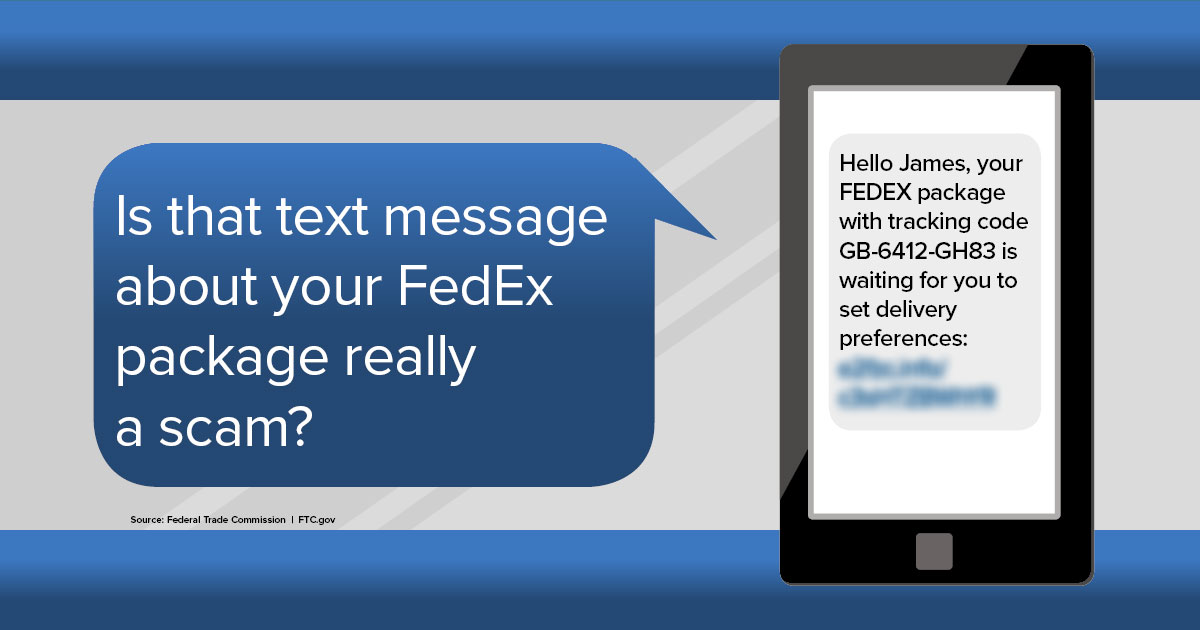How to Avoid Shipping and Phishing Scams During the Holidays
While Black Friday, the busiest shopping day of the year, has come and gone, hackers will continue to ramp up their shipping and other holiday-related scams to take advantage of the increase in retail spending.
Like all phishing attacks, the purpose of these scams is to trick you into revealing personal information, organizational information or sending money to those pretending to work for legitimate companies.
During the holiday season, scammers do this by sending you notices that require you to pay extra shipping fees or asking you to confirm an address before an item can be delivered.
“The holidays can be an overwhelming time of year, and scammers know this and aim to take advantage of the increased spending and generosity of people. It’s important to stop and think before acting or clicking links to protect yourself and your organization from harm.”
There also are social media ads that direct you to fake stores to steal your credit card information or personal information, as well as charity scams, where scammers create fake charities or GoFundMe campaigns to trick you into sending money or sharing your personal information.
It’s important to always be skeptical of any email or text that looks out of the ordinary but especially so as you purchase gifts for employees during the holiday season.
Be Wary of Unexpected Texts, Emails and Phone Calls
While most phishing scams attempt to deceive you through email, many of them will happen via text message or even an old-fashioned phone call.
A text message or phone call may seem more legitimate because you probably don’t share your personal or work phone number as much as you share your email address, but you should still exercise caution when receiving messages from a number you don’t recognize.
If you get a message that is causing you to think twice, contact the organization through a different medium to verify the message you received is real.
Do Not Click Links
Links in fraudulent messages should be avoided at all costs. These links can harm you and your organization by installing malware, capturing login information or helping attackers access your company’s network.
Here’s a sample shipping text message scam the FTC is warning people about that comes from an attacker pretending to be FedEx.

If you receive a message like this, it should raise several red flags, especially if you aren’t expecting a package anytime soon.
If you are expecting a package and think it could be a legitimate message, go to the vendor’s website or call them directly. Again: never click a link directly from a message.
If a Deal Seems Too Good to Be True, it Probably is
If you see a social media ad or get an email about an Amazon deal for 90% off a $2,000 TV, it’s most likely a fake deal.
Online retailers and brick-and-mortar stores are doing everything in their power to get you to shop with them during the holidays, and scammers take advantage of that with outrageous deals.
Don’t Use Peer-to-peer Digital Payment Apps
Unlike traditional banking systems, many peer-to-peer (P2P) digital payment apps won’t cover you in case of fraud. Examples of P2P payment apps include PayPal, Cash App, Venmo and Zelle.
The Better Business Bureau recommends avoiding businesses or individual sellers who only allow you to pay with digital payment apps. Instead, use digital payment apps to transfer money to friends, family and other people you already know.
If you sent money to a scammer with a payment app, you should report it to the company of the payment app, as well as the Federal Trade Commission.
The holidays can be an overwhelming time of year, and scammers know this and aim to take advantage of the increased spending and generosity of people. It’s important to stop and think before acting or clicking links to protect yourself and your organization from harm.
Learn More About Phishing Training
Looking to protect your company from cybersecurity threats? Contact us here to learn how we can help secure your sensitive data.











